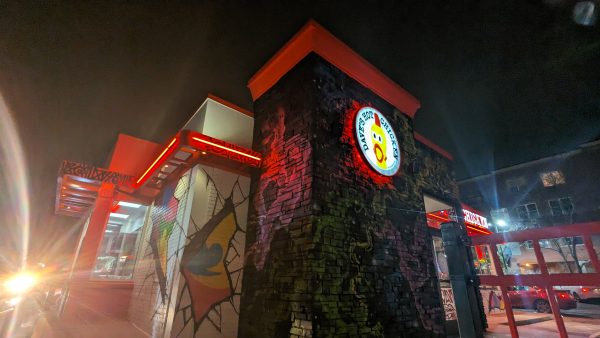Letter to the editor: the struggles of refugees
December 10, 2014
A place to call home
Amelia Earhart once said “The more one does and sees and feels, the more one is able to do, and the more genuine may be one’s own appreciation of fundamental things like home, and love, and understanding companionship” According to TC World Refugee Day there are 22,024 Hmong refugees that have found their way to the Twin Cities from 1979-2012. Under international law, a refugee is someone who is “unable or unwilling to return to and avail himself or herself of the protection of his or her home country or, if stateless, country of last habitual residence because of persecution or a well-founded fear of persecution on account of race, religion, nationality, membership in a particular social group, or political opinion.” We can see the community’s presence in the form of schools, stores, friends, and peers. Perhaps many of you can even feel their impact as you live your day-to-day lives in a city that features the second-highest Hmong population in the United States. Yet, in that same vibrant community there are struggles, tangible ones that negatively affect the lives of so many human beings around you. When a fundamental human right like having a place to call home is lost, what is our obligation to help? Can we generate the compassion, love and understanding it takes to do something about it? It starts with simple steps, and it starts with awareness.
Due to the immense amounts of refugees, there are substantial problems that deprive these individuals of basic human comforts. Over the past decade there has been a dramatic increase in housing insecurity and homelessness among refugee populations. Unfortunately, due to the lack of empirical studies there is little concrete information known about the refuge housing issues within the U.S. This has led to a government that has failed to develop specific policies for these refugee populations.
According to the National Alliance to End Homelessness, the Hmong refugee population had the highest “move frequency” as well as the longest time taken to find permanent settlement, with the average just above four years. The most common reasons for consistent re-locations were due to the fact that most of the living arrangements were “too crowded.” 41% found that the reason they couldn’t find housing was the rent was too expensive; while 28% claimed it was due to language barriers, 18% because apartments were too crowded and 10% because they simply couldn’t find adequate housing. The study remarks “The meaning of living in ‘own’ place differs from a respondent’s perception and understanding. It does not only refer to ‘buying a house and legally owning a property’ but also includes the meaning of ‘paying rent to the house themselves’”
These problems are often exacerbated by prominent language barriers, lack of transportation and basic lack of information on services that could be provided to them to assist in the transition. In the early stages of resettlement, many find there to be a lack of social support outside of their tight-knit community. This can manifest itself in the form of an inability to get an interpreter when a relative is sick, inconsistent access to healthcare and the inability to provide transportation for their children while they work 10-12 hour shifts. As the duration of their stay increased, many report loss of jobs, family conflict (specifically domestic violence), cultural barriers and the real threat of homelessness as issues that tear at the basic foundation of the community. As the number of refugees increase, this problem is not going away, nor can it continue to be excluded from the surrounding community dialogue.
So, when we as students in Leila Deverise’s “Human Rights in a Globalized World” class were tasked to identify a human rights issue in which we wanted to raise awareness about, this one eventually came to the forefront of our minds. In the class we not only developed a broad understanding of the history of human rights legislation and implementation, but we also gained the tools to critically think and act on ongoing human rights violations not only in our community, but around the world. As a class assignment, we were asked to launch an advocacy campaign to raise awareness about a human rights issue. Part of the purpose of the assignment was to learn how to collaborate on a group project that has a real world impact. So, after deliberation we had to ask ourselves not only what needs to be done in this instance, but what could we specifically do to make an impact? We also knew we had limited time and resources, yet the more we researched the more we developed the resolve to at least do something. So that’s what we did, and the purpose of this letter is to show how you, the readers, can help us accomplish our goals.
In the next couple of weeks, our class will send out a video detailing and attempting to visually show the constant struggles refugees face not only with finding housing, but also with assimilation into a society that is often hampered by language barriers, lack of awareness to social services provided, educational strains and economic hardships. Our hope is that people can help facilitate the awareness we hope to raise from the video by perhaps writing to your local representative as well as searching out organizations that may facilitate services to those whose need is most dire. It is our desire that you support our actions in the next couple of weeks to raise awareness to these issues, and that you remember that everyone deserves that fundamental human right to have a place to call home.
-Andrew Graham





